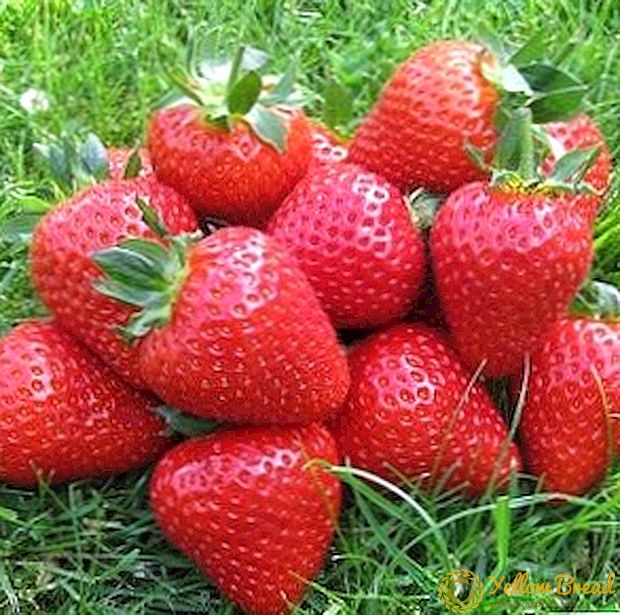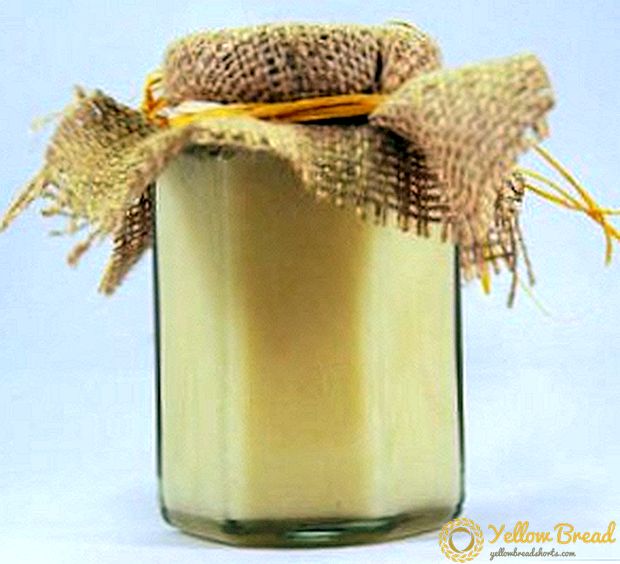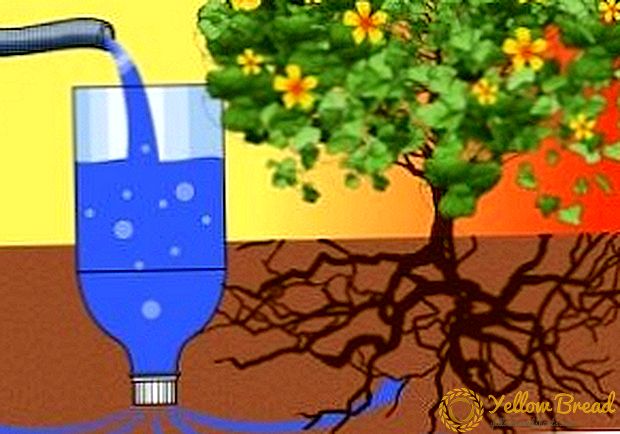 "Tsitovit" is a popular fertilizer used for the prevention of many diseases of garden crops, fruit crops, indoor plants and other ornamental plants.
"Tsitovit" is a popular fertilizer used for the prevention of many diseases of garden crops, fruit crops, indoor plants and other ornamental plants.
It is also used to improve growth, the appearance of ornamental plants, increase yields, etc. In this article we will get acquainted with the instructions for using Tsitovit fertilizer, its compatibility with other drugs, its toxicity and how it should be stored.
- Description and release form
- Fertilizer composition
- Instructions for use and dosage
- For garden crops
- For fruit
- For garden decorative
- For room
- Combined use
- Hazard Class
- Storage conditions
Description and release form
"Tsitovit" is widely used, it is used to increase the resistance of plants to negative environmental factors, such as: lack of light for seedlings, lowering the temperature, high or low humidity.
Thanks to this fertilizer, growth is stimulated, the ovaries fall less often, and the growth points do not die. It is also used for the prevention of chlorosis, leaf spot, blight, various types of rot, etc.
The great advantage of this drug is that it can be used for all types of crops and ornamental plants.
Produced "Tsitovit" in chelate form, which allows plants to better assimilate the elements that make up the solution.
Sold in bottles of 1.5 ml, this form of release facilitates the preparation of the working substance. 
Fertilizer composition
"Tsitovit" is a fast-acting complex organic fertilizer, which includes per gallon of fertilizer: 30 g of nitrogen, 5 g of phosphorus, 25 g of potassium, 10 g of magnesium, 40 g of sulfur, 35 g of iron, 30 g of manganese, 8 g of boron, 6 g of zinc, 6 g of cuprum and 4 g of molybdenum.
Instructions for use and dosage
The use of "Tsitovita" is welcomed at different stages of plant growth, you can even process the seeds two days before sowing. As a rule, the solution is sprinkled with seedlings, especially if a picking has been carried out, which contributes to a more rapid recovery and growth of the roots.It will not be superfluous to carry out spraying during the formation of the ovary, as well as before the fruit ripens.
This, in turn, will increase the stability and yield of the plant, which will give high-quality fruits with a longer shelf life.
Before you apply fertilizer, you should pay attention to the condition of the soil. If the culture is planted in the black soil, then the feeding under the root can not be carried out, since this type of soil already contains a sufficient number of micro and macro elements.
It will be enough to process only the seeds or seedlings before planting. As a disease prevention, leaf spraying can be carried out.
If there is increased soil moisture, it is recommended to carry out sheet processing in order not to harm the root system by increasing the moisture level.
On scanty and depleted soils, Tsitovit is used for root dressings and regular spraying with simultaneous application of fertilizers containing sulphates. 
For garden crops
Fertilizer is ideal for all garden crops. It is used for soaking seeds at the rate of 4-5 drops per 100 ml for a couple of hours.To feed the seedlings, 1 ml per 1 l of water is enough. This solution is applied no more than once every ten days.
As for tomatoes and cucumbers, the concentration of "Tsitovit" should be 1.5 ml per three liters of water. This solution is enough for fertilizer 10 square meters. meters of soil. It should be used as a foliar feeding with a frequency of once every 14 days.
For spraying potato tubers under planting, prepare a solution of 1.5 ml per 1.5 liters of water.
For fruit
Nutrient solution "Tsitovita" maintains the tone of fruit trees, increases their endurance to temperature extremes, especially in winter. Plants that have been fed in the fall can withstand severe frosts better, their buds become less frost-covered and in the spring period they start to grow earlier.  Trees and shrubs are treated both after harvest and during the formation of buds and ovaries. Fertilizer is prepared from 1.5 ml of solution and 1.5 l of water.
Trees and shrubs are treated both after harvest and during the formation of buds and ovaries. Fertilizer is prepared from 1.5 ml of solution and 1.5 l of water.
For garden decorative
"Tsitovit" is effective for feeding garden crops.It has a positive effect on the appearance of plants, the number, pomp and brightness of flowers, prolongs the flowering itself.
Spray the plants with a solution of 2 ml of micronutrient per 2 liters of water. To increase the ornamentation, it is necessary to process the flowers and shrubs in the spring with the appearance of the first leaves and buds, as well as after the flowering period.
For room
The drug will be useful for fans of indoor plants. It is necessary to dilute 2.5 ml of the substance in 3 liters of distilled water. The root-dressing should be carried out from early spring to mid-autumn on average four times.
Moistening in the pot should be complete. The fertilizer is also sprayed on the leaves - twice in the spring and twice in the autumn. 
Combined use
In order to prevent the emergence of fungal diseases, the most productive can be called the combined use of Tsitovit and Zircon, which are used for planting seeds and root crops.
When transplanting and pruning ornamental plants during a drought or cold spell, spraying a mixture of Tsitovit and Epin-extra will be useful.
Hazard Class
The considered drug is moderately dangerous and belongs to the third class of danger. However, it is not toxic to plants, but on the contrary, it can be used to reduce the level of nitrate substances in products during overdose with mineral or organic fertilizers.
"Tsitovit" is easily dissolved in water, without forming precipitation, which, in turn, allows it to be used in drip irrigation, since it does not clog filters and the irrigation system. 
Storage conditions
According to the instructions, if you store the drug in a closed package in a place protected from sun and moisture at a temperature of from 0 ° C to +25 ° C, then its shelf life will be two years.
The finished mixture is best used immediately after preparation, but allowed to store no more than three days in a dark place. In this case, in the fertilizer you need to add citric acid in the proportions of 1 g of acid per 5 liters of water.
“Tsitovit” is not only a fertilizer, but also a drug that helps plants to easily adapt to negative factors and resist diseases. He gained great popularity not only among gardeners, but also among fans of ornamental plants, since it can be used for any crops.






